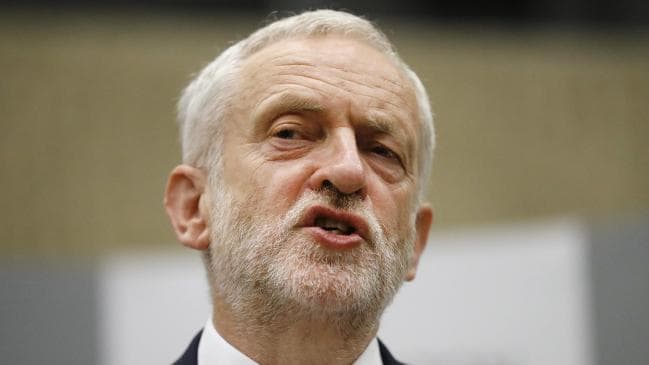Did you know Jeremy Corbyn’s mother fought at the Battle of Cable Street? I know it’s a well-kept political secret, a bit like that one about London Mayor Sadiq Khan’s dad being a bus driver, or that other one about Theresa May thinking Brexit means Brexit and wanting to make a success of it, but apparently it is true.
Speaking two years ago at the 80th anniversary of that street fight between the British Union of Fascists and demonstrators opposed to the group (one of not more than a mere 300 or so times he has mentioned it in public), the British Labour leader said the fight, for him, had “a deep personal significance”. I wonder how it feels for him, then, watching the children of his mother’s brothers and sisters in arms heading to Westminster. To protest, this time, not against fascists but against him.
Since he became leader 2½ years ago, Corbyn has wrestled with a problem in his ranks without ever quite admitting it was really there. Anti-Semitism, when mentioned, was appended with “and other forms of racism” until the phrase became a joke. Shami Chakrabarti’s report into Labour’s anti-Semitism problem concluded it didn’t really have one, before at the event literally launching the thing a Jewish Labour MP was harangued from the room. Numerous party members have been suspended but the line has always been that they were cranks, representative of nobody but themselves.
This denialism has come from the top. When the (Jewish) Guardian journalist Jonathan Freedland wrote an article in 2016 headlined “Labour and the left have an anti-Semitism problem”, Corbyn was filmed calling it “utterly disgusting subliminal nastiness”. For him and his, they were the good guys. Thus the people criticising them were the bad guys. Never mind what so many of them seemed to have in common.
Read the article by Hugo Rifkind (The Times) in The Australian(subscription required).

